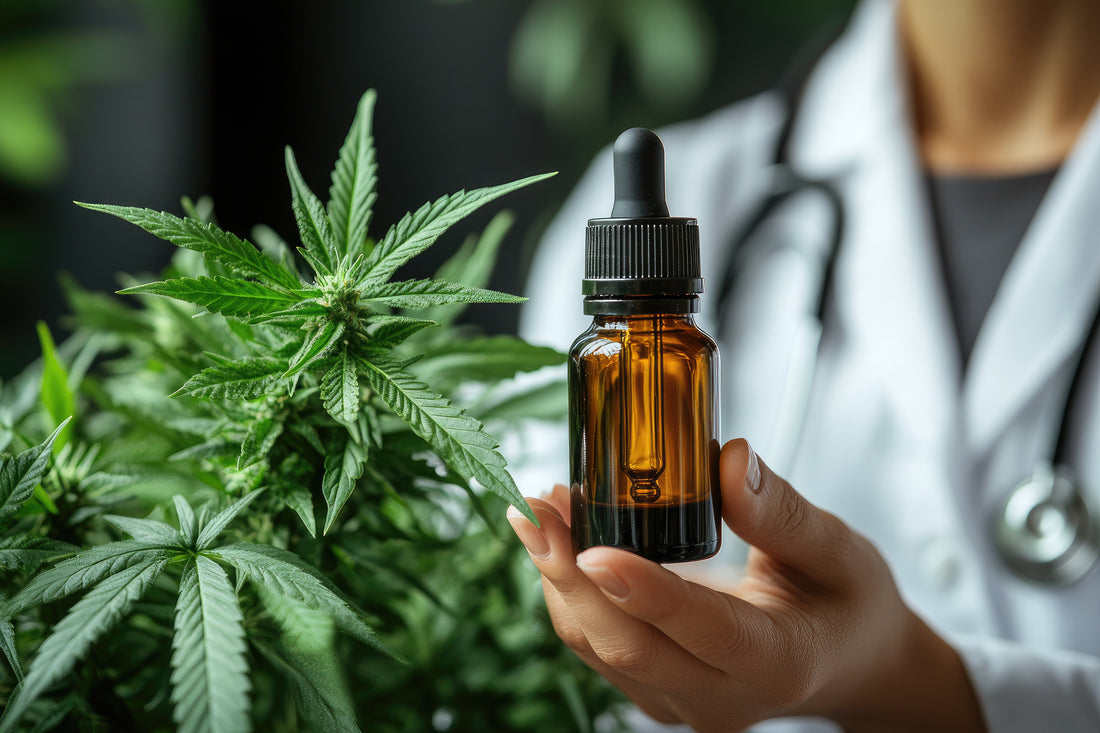CBD is a cannabinoid isolated from all psychotropic and addictive substances. It can be used to relieve a variety of common problems, such as stress, improving sleep, reducing pain... CBD is not recognized as a drug, either by the authorities or by scientists, and Mama explains why.
CBD is not psychotropic
CBD is a molecule derived from the cannabis plant. The molecule has been extracted and added to seed varieties renowned for their flavor and cannabidiol (CBD) concentration. There are differences between THC and CBD. Cannabis contains a THC molecule which has addictive and psychoactive effects. Nevertheless, this molecule has been tamed and regulated using small quantities.
It is from this modified seed bank that CBD has appeared in all the specialist stores. To be approved for sale, each variety must contain no more than 0.3% THC (the legal limit at America).
The low percentage of Tetrahydrocannabinol (THC) guarantees optimal effectiveness of CBD's virtues through the entourage effect. At the same time, the risk of psychoactive repercussions for the consumer is extremely low.
Keeping a low THC content, also known as full spectrum in CBD oils, enables the fusion of all the cannabinoids beneficial to well-being. After all, THC coupled with CBD or other cannabinoids play a major role in reducing pain and relaxation.
CBD is not addictive
No, CBD is not addictive. According to the French Interministerial Mission for the Fight against Drugs and Addictive Behavior (MILDECA), CBD is not addictive. Although it acts on the brain, providing relaxing and soothing effects, this molecule does not have psychotropic properties like THC.
According to the World Health Organization (WHO), CBD is non-toxic as long as you don't inhale it. But Mama still suggests vaping with a special vape, which is one of the best ways to consume CBD without toxic effects.
Unlike THC (delta-9-tetrahydrocannabinol), which has psychotropic effects and is potentially addictive, CBD does not bind to the same endocannabinoid receptors in the body. This notion makes all the difference between an addictive or non-addictive substance.
What's more, all CBD products must be precisely controlled and contain no more than 0.3% THC, which considerably reduces the chances of developing an addiction.
CBD can help fight addiction
Cannabidiol (CBD) is the second most abundant component of cannabis, and may modulate brain responses involved in addiction. According to a National Library of Medicine review published in May 2015, CBD may inhibit neuronal responses linked to addiction.
The three phases of addictive behavior have been studied:
- intoxication, when the drug produces positive and gratifying experiences;
- withdrawal, when the user experiences acute physical and psychological withdrawal symptoms;
- and craving, which also corresponds to relapse.
21 studies were identified, carried out on groups of animals and humans.
They focused on different sources of addiction: opioids, psychostimulants, cannabis, hallucinogens, sedatives, alcohol, tobacco and more.
Furthermore, a study carried out showed that out of 1,500 people, 11% used CBD to reduce or even stop their consumption of cannabis or alcohol. With the development of CBD stores, it appears that a large number of cannabis consumers have replaced their THC consumption with CBD. Most of them are showing a real desire to give up and find in CBD a gentle and effective solution to their addiction.
CBD: what happens during a police check?
CBD is not considered a drug by French, European authorities, or scientists. However, legal uncertainty persists regarding roadside checks due to its drowsy effects. Regular CBD users may show traces of THC in saliva tests.
Mama advises being honest with the agent and asking for urine and blood tests for further verification, where normally THC should not be detected.
CBD is not a drugAt Mama's, you'll find strains that comply with the legal THC limit. But you'll have to keeping a watchful eye on the law that concern the CBD at the wheel and in public spaces.
